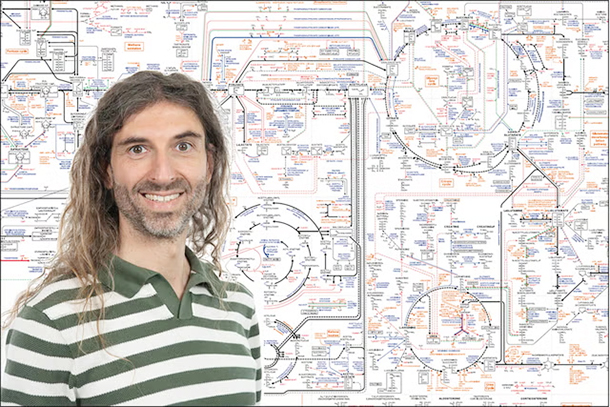Selenium's Double-Edged Role in Cancer
Although selenium is widely known for its antioxidant properties and is essential for human health, the research uncovered a surprising vulnerability. Triple negative breast cancer cells rely heavily on selenium for survival, especially when the cells are isolated or scattered. This discovery is critical since TNBC becomes particularly dangerous when it metastasizes, or spreads beyond the initial tumor site, making it harder to treat.Once cancer cells gather in clusters, they create a fat molecule rich in oleic acid—an agent found in olive oil—that protects them from a type of cell death called ferroptosis. Ferroptosis is triggered when selenium levels are insufficient, but the protection provided by clustered cells makes them more resilient. However, during the initial stages of metastasis, when cells are in the bloodstream or seeking to invade new tissues, disrupting their selenium uptake could leave them vulnerable to death.A Promising Path to Prevent Metastasis
The study, published in EMBO Molecular Medicine, found that by interfering with selenium metabolism in sparse cancer cells, researchers were able to kill TNBC cells circulating in the blood, particularly those attempting to spread to the lungs. Lead researcher Dr. Saverio Tardito explained:“We need selenium for survival, so removing it from the diet isn’t an option. However, if we develop treatments that specifically block the uptake of selenium by these cancer cells, we could stop the disease from spreading.” Dr. Tardito emphasized that while primary breast cancer is often treatable through surgery and therapy, metastasis significantly worsens outcomes. Since TNBC offers fewer treatment options compared to other breast cancer types, these findings represent an exciting breakthrough.Cancer Research UK’s Science Engagement Lead, Dr. Sam Godfrey, commented:“Research like this could be game-changing for patients with TNBC, providing new strategies to prevent its spread and improve survival rates.”Personal Hope for Future Generations
Dr. Tardito emphasized that while primary breast cancer is often treatable through surgery and therapy, metastasis significantly worsens outcomes. Since TNBC offers fewer treatment options compared to other breast cancer types, these findings represent an exciting breakthrough.Cancer Research UK’s Science Engagement Lead, Dr. Sam Godfrey, commented:“Research like this could be game-changing for patients with TNBC, providing new strategies to prevent its spread and improve survival rates.”Personal Hope for Future Generations
Lisa Bancroft, a 32-year-old from Dunfermline, Fife, praised the research. Diagnosed with a BRCA gene mutation at age 27, she opted for preventative surgery to remove both her breasts. Now cancer-free, she reflected on the importance of scientific progress:“This research offers so much hope. Advances in understanding genetic mutations like mine have already changed my life, and this could help others facing triple negative breast cancer find more treatment options.” Ms. Bancroft lost both her father and aunt to cancer, with her aunt succumbing to TNBC. As the mother of a young daughter, she remains focused on building a future where better cancer treatments are available.Triple Negative Breast Cancer in Numbers
Ms. Bancroft lost both her father and aunt to cancer, with her aunt succumbing to TNBC. As the mother of a young daughter, she remains focused on building a future where better cancer treatments are available.Triple Negative Breast Cancer in Numbers
Annual breast cancer cases in the UK: ~56,800
Percentage diagnosed with TNBC: ~15%
Associated risk factors: BRCA gene mutations
Advancing Cancer Treatment: The Next Steps
The study opens the door for further research to develop drugs that selectively inhibit selenium uptake in TNBC cells without affecting healthy tissues. With metastasis being the primary cause of fatal outcomes, these findings could reshape treatment approaches for patients with limited options.
Although selenium is widely known for its antioxidant properties and is essential for human health, the research uncovered a surprising vulnerability. Triple negative breast cancer cells rely heavily on selenium for survival, especially when the cells are isolated or scattered. This discovery is critical since TNBC becomes particularly dangerous when it metastasizes, or spreads beyond the initial tumor site, making it harder to treat.Once cancer cells gather in clusters, they create a fat molecule rich in oleic acid—an agent found in olive oil—that protects them from a type of cell death called ferroptosis. Ferroptosis is triggered when selenium levels are insufficient, but the protection provided by clustered cells makes them more resilient. However, during the initial stages of metastasis, when cells are in the bloodstream or seeking to invade new tissues, disrupting their selenium uptake could leave them vulnerable to death.A Promising Path to Prevent Metastasis
The study, published in EMBO Molecular Medicine, found that by interfering with selenium metabolism in sparse cancer cells, researchers were able to kill TNBC cells circulating in the blood, particularly those attempting to spread to the lungs. Lead researcher Dr. Saverio Tardito explained:“We need selenium for survival, so removing it from the diet isn’t an option. However, if we develop treatments that specifically block the uptake of selenium by these cancer cells, we could stop the disease from spreading.”
 Dr. Tardito emphasized that while primary breast cancer is often treatable through surgery and therapy, metastasis significantly worsens outcomes. Since TNBC offers fewer treatment options compared to other breast cancer types, these findings represent an exciting breakthrough.Cancer Research UK’s Science Engagement Lead, Dr. Sam Godfrey, commented:“Research like this could be game-changing for patients with TNBC, providing new strategies to prevent its spread and improve survival rates.”Personal Hope for Future Generations
Dr. Tardito emphasized that while primary breast cancer is often treatable through surgery and therapy, metastasis significantly worsens outcomes. Since TNBC offers fewer treatment options compared to other breast cancer types, these findings represent an exciting breakthrough.Cancer Research UK’s Science Engagement Lead, Dr. Sam Godfrey, commented:“Research like this could be game-changing for patients with TNBC, providing new strategies to prevent its spread and improve survival rates.”Personal Hope for Future GenerationsLisa Bancroft, a 32-year-old from Dunfermline, Fife, praised the research. Diagnosed with a BRCA gene mutation at age 27, she opted for preventative surgery to remove both her breasts. Now cancer-free, she reflected on the importance of scientific progress:“This research offers so much hope. Advances in understanding genetic mutations like mine have already changed my life, and this could help others facing triple negative breast cancer find more treatment options.”
 Ms. Bancroft lost both her father and aunt to cancer, with her aunt succumbing to TNBC. As the mother of a young daughter, she remains focused on building a future where better cancer treatments are available.Triple Negative Breast Cancer in Numbers
Ms. Bancroft lost both her father and aunt to cancer, with her aunt succumbing to TNBC. As the mother of a young daughter, she remains focused on building a future where better cancer treatments are available.Triple Negative Breast Cancer in NumbersAnnual breast cancer cases in the UK: ~56,800
Percentage diagnosed with TNBC: ~15%
Associated risk factors: BRCA gene mutations
Advancing Cancer Treatment: The Next Steps
The study opens the door for further research to develop drugs that selectively inhibit selenium uptake in TNBC cells without affecting healthy tissues. With metastasis being the primary cause of fatal outcomes, these findings could reshape treatment approaches for patients with limited options.









